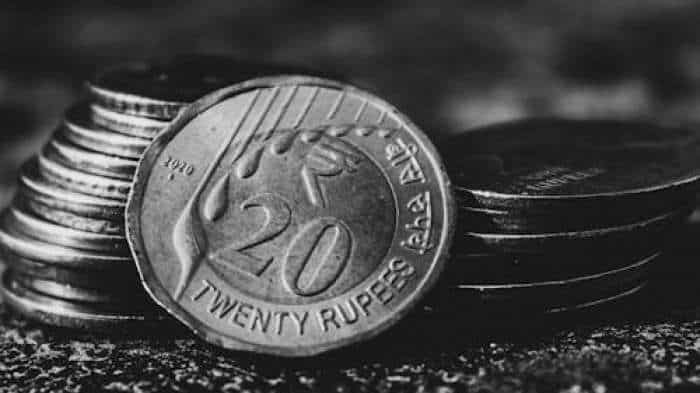Russia-Ukraine War Impact on India Economy: Too early to predict, says eminent economist Pinaki Chakraborty
Western nations, including the US, have imposed major economic and other sanctions on Russia following the aggression.

The global macroeconomic uncertainties have increased due to the Russia-Ukraine war, but it is too early to predict its impact on the Indian economy, eminent economist Pinaki Chakraborty said on Wednesday.
WATCH | Click on Zee Business Live TV Streaming Below:
In an interview with PTI, Chakraborty said high-frequency data show that in many countries, inflation is higher than expected, there are supply chain disruptions and much higher volatility in financial markets.
"As we recover from the COVID-19 pandemic, the global macroeconomic uncertainties have increased due to the war between Russia and Ukraine.
"However, it is too early to even predict its impact on the Indian economy," he said.
Chakraborty, the director of the National Institute of Public Finance and Policy (NIPFP), said India's current macroeconomic situation is definitely better than what it was earlier but due to global uncertainties, the country will have to be watchful.
Russia started its military offensive against Ukraine on February 24. Western nations, including the US, have imposed major economic and other sanctions on Russia following the aggression.
While noting that the global economy will get impacted due to the Russia-Ukraine conflict, the eminent economist said quantification of that impact at this stage will be difficult.
"What is the most important is to manage and navigate disruptions created by war, so that we have minimum impact on fisc, minimum impact on our deficit levels and we are able to execute the budgetary priorities accorded into 2022- 23 budget," he emphasised.
Asia's third-largest economy is projected to grow 8.9 per cent in the current fiscal, slower than the previously anticipated 9.2 per cent, according to recent government data.
Chakraborty observed that India has not entered into a situation of high inflation, low growth and high fiscal deficit. In fact, India's macro situation is stable and the country is on the path of broad-based sustainable recovery.
Retail inflation hit an eight-month high of 6.07 per cent in February, remaining above the RBI's comfort level for the second month in a row, while wholesale price-based inflation soared to 13.11 per cent on account of the hardening of crude oil and non-food item price.
The Reserve Bank of India (RBI) on February 10 had lowered the inflation outlook to 4.5 per cent for the next fiscal, from 5.3 per cent in the current year.
Chakraborty emphasised that since the onset of COVID-19, there has been significant fiscal and monetary expansion.
"Inflation is partly the outcome of this expansion. We need to focus on growth recovery, fiscal sustainability and monetary tightening," he said.
According to Chakraborty, though the war is a major disruption to the process of post-COVID-19 economic recovery, fiscal consolidation is emerging as a major issue as countries deal with a large deficit and debt, high inflation and uneven economic recovery.
"Though in the short run, necessary flexibility for the creation of fiscal space needs to be provided through higher borrowing, there is a need to return to a sustainable fiscal management for macro stability and growth when we take a medium-term view," he argued.
Get Latest Business News, Stock Market Updates and Videos; Check your tax outgo through Income Tax Calculator and save money through our Personal Finance coverage. Check Business Breaking News Live on Zee Business Twitter and Facebook. Subscribe on YouTube.
RECOMMENDED STORIES

Power of Compounding: How can you create Rs 5 crore, 6 crore, 7 crore corpuses if your monthly salary is Rs 20,000?

Rs 1,000 Monthly SIP for 40 Years vs Rs 10,000 Monthly SIP for 20 Years: Which can give you higher corpus in long term? Calculations inside

Top 7 ETFs With Highest Returns in 1 Year: No. 1 ETF has turned Rs 8,78,787 investment into Rs 13,95,091; know how others have fared

Latest SBI Senior Citizen FD Rates: How much senior citizens can get on investments of Rs 5,55,555, Rs 7,77,777, and Rs 9,99,999 in Amrit Vrishti, 1-, 3-, and 5-year FDs

after bumper 2024 rs 2 lakh crore worth ipos expected in 2025 primary market nsdl avanse financial ecom express sebi approval
11:28 AM IST








 Maharashtra will play key role in achieving India's $5 trillion economy goal: Minister Aditi Tatkare
Maharashtra will play key role in achieving India's $5 trillion economy goal: Minister Aditi Tatkare India's GDP growth to pick up in third quarter compared to first half of FY25: ICRA report
India's GDP growth to pick up in third quarter compared to first half of FY25: ICRA report GST collection grows 9% to Rs 1.87 lakh crore in October
GST collection grows 9% to Rs 1.87 lakh crore in October IMF says India's GDP growth to moderate to 7% in 2024 and 6.5% in 2025
IMF says India's GDP growth to moderate to 7% in 2024 and 6.5% in 2025  India poised to be third largest global economy by 2030, rising population presents challenges: S&P
India poised to be third largest global economy by 2030, rising population presents challenges: S&P